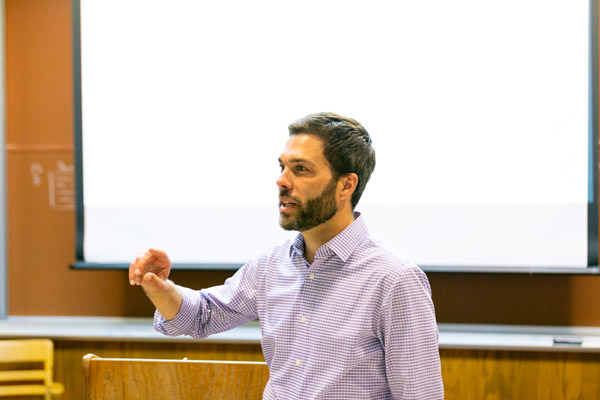The “Inside the PTS Curriculum” series gives you an inside look at what students are learning in their courses at Pittsburgh Theological Seminary. Each article focuses on one class, its subject matter, what students can expect to learn, the required texts, and the kinds of assignments students can expect. We’ll let you know whether the course is required or available for the Master of Divinity (MDiv), the Master of Arts in Pastoral Studies (MAPS), or Master of Theological Studies (MTS). Each article will include the professors’ bio.
This week’s course is: “Planting and Leading New Faith Communities.”
About Planting and Leading New Faith Communities
During this term, Pittsburgh Theological Seminary students will be learning about church planting with Dr. Scott Hagley in the class “Planting and Leading New Faith Communities.” This course is required for students in the Master of Divinity (MDiv) with Emphasis in Church Planting program, and it is open to all students in the Master of Divinity (MDiv), Master in Pastoral Studies (MAPS), and Master of Theology (MTS) degree programs.
In this course, students will adopt a biblically/theologically rooted approach to planting mission-shaped churches. They will be formed as church planting leaders able to cultivate these new mission-shaped Christian communities in specific contexts. Students will develop the capacity to be theologically reflective leaders from within concrete personal and communal postures, habits, and skills of initiating and leading the formation of new Christian communities. To these ends, students will engage in interpretation and imagination of particular contexts, reflect on their vocation, grow in their leadership capacities, and develop spiritual habits of discernment.
Assignments include weekly reflections based on required readings and an important final project. This project will ultimately represent a proposal for a new faith community and will include a rule of life, neighborhood report, and experience in the context. The five required texts are The Abundant Community: Awakening the Power of Families and Neighborhoods by Peter Block and John McKnight; Missional. Monastic. Mainline: A Guide to Starting Missional MicroCommunities in Historically Mainline Traditions by Elaine Heath and Larry Duggins; The Pentecost Paradigm: Ten Strategies for Becoming a Multiracial Congregation by Jacqueline L. Lewis and John Janka; Brian Bantum’s The Death of Race: Building a New Christianity in a Racial World; and Christopher James’ Church Planting in Post-Christian Soil.
About the Instructor
Dr. Scott Hagley is associate professor of missiology and joined the Pittsburgh Seminary faculty in 2015. He received a B.A. in youth ministry and communication from Bethel University, an M.Div. from Regent College, and a Ph.D. (with distinction) in congregational mission and leadership from Luther Seminary. He has served as director of education at Forge Canada in Surrey, British Columbia, where he worked to develop curriculum for the formation of missional leaders in hubs across Canada. He also served as teaching pastor at Southside Community Church, a multi-site church in the Vancouver metro area organized around neighborhood-based missional communities. Dr. Hagley has taught courses at Augsburg College, Rochester College, Bethel University, and Luther Seminary, and previously he was a consultant and researcher with Church Innovations Institute. He has lectured at denominational meetings and retreats on topics such as missional communities, faith, and spiritual formation. His most recent book is Eat What is Set Before You: A Missiology of the Congregation in Context.

